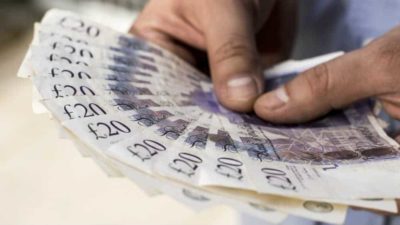Shares in easyJet (LSE: EZJ) slumped by 6% to 1,630p in early trading, after the budget airline released first-half results — even though the figures were better than expected!
Total revenue for the six months to 31 March reached £1,702m, which is 6.3% ahead of the same half a year previously. The capacity of the fleet was up by 3.6% to 31.1 million seats, and average load factors rose by 0.4 percentage points to 89.0%.
 Better service
Better service
It turns out that the “first come, first served” mad scramble for seats was actually a less popular method for keeping costs down than the airline had previously thought, with a rise in revenue per seat being put down partly to the introduction of allocated seating — the company took 1.5% more per seat on a constant-currency basis (2.6% reported) than it did the same time a year ago.
During the off season, airlines like easyJet traditionally make a loss — the profits come from the summer high season. But easyJet recorded a pre-tax loss for the period of just £53m, which is a 13% fall on the previous year, and it was below March’s estimate of £55-65m.
The firm’s use of allocated seating combined with more ticketing flexibility is also attracting more business passengers — in the 12 months to 31 March, 12 million of them boarded the orange and white planes, hitting a new record.
Improved profitability
All told, the rise in revenue together with improved profitability led a substantial fall in the season’s loss per share — down 13.3%, from a loss of 12p per share to just 10.4p.
Chief executive Carolyn McCall was moved to say
“easyJet has delivered a solid first half performance despite the less benign capacity environment. The results […] demonstrate the structural advantage easyJet has against both legacy and low cost competition in the European short haul market.“
So why the early share price fall?
It’s hard to say, but the price is up still up around 45% over the past 12 months and by more than 500% over five years, so maybe there’s been a bit of profit-taking. And, in fact, during the time it’s taken me to write these words the shares have recovered a little — back up to 1,655p for a net fall of 4.3%.
A long-haul investment
Looking forward, the shares are on a prospective P/E of a bit over 15 based on full-year forecasts. But with the first half ahead of earlier prognostications, we may well see newer forecasts beefed up a little.
For those chasing dividends, easyJet’s have been steadily cranked up since they were introduced in 2011, though the soaring share price has kept the yield modest — likely around 2.2% for this year.







